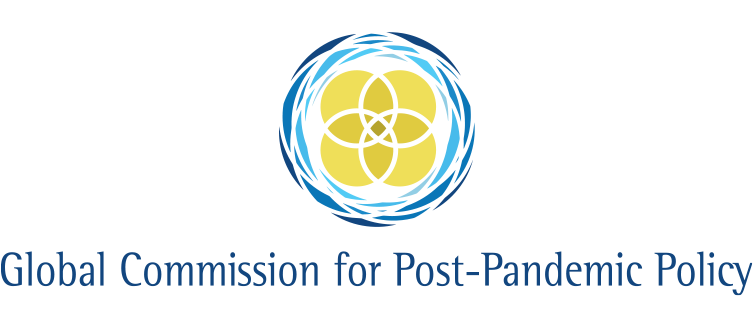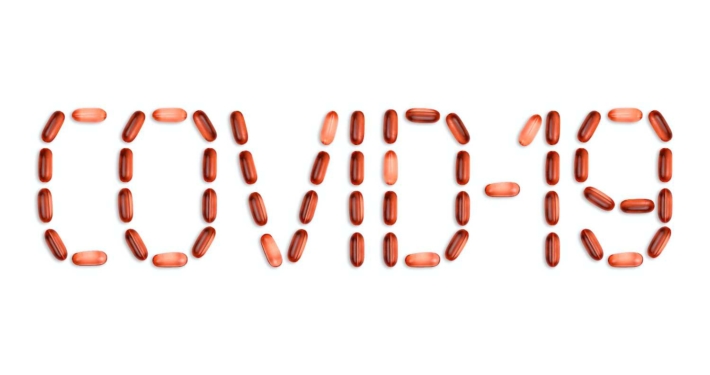The Pandemic, week to April 13th
Health
This week, COVID-19 infection rates continued to rise sharply worldwide, approaching the record heights set in early January. The surge is being driven primarily by India, which is now reporting over 150,000 new cases a day. The condition of Latin America and the Middle East is also deteriorating, with Argentina and Iran worst affected. By contrast, the situation in Europe has improved dramatically as the effect of more stringent restrictions has kicked in, along with faster vaccination roll-outs.
The safety committee of the European Medicines Agency (EMA) concluded that unusual blood-clots with a low platelet count should be listed as very rare side- effects of the Oxford-AstraZeneca COVID-19 vaccine. The body is now also investigating whether a handful of similar blood-clotting events are linked to the single-dose Johnson & Johnson COVID-19 vaccine. Meanwhile in the United States, the Food and Drug Administration (FDA) and Centers for Disease Control jointly recommended use of the J&J vaccine should be suspended. In more positive news, Pfizer and BioNTech have asked the FDA to extend the emergency-use authorisation granted to their mRNA COVID-19 vaccine to children between the ages of 12 and 15 following strong results in clinical trials.
In Europe, the European Commission told national delegates in Brussels that it expects most EU member states to have enough COVID-19 vaccines to immunise the majority of their populations by mid-year. The news broke shortly after Olivier Veran, French Health Minister, announced that France was vaccinating its citizens in record numbers, with 510,000 people vaccinated on Friday. The same is true of Germany, which vaccinated a record 720,000 people the day before.
In Russia, excess mortality figures from the official statistics agency Rosstat suggest that the true death toll of the COVID-19 in 2020 was much higher than official statistics showed at the time. In the period from March to December 2020, there were a total of 362,302 more deaths than average—a 28% increase. This figure stands in stark contrast to the official tally of COVID-19 deaths measured at the time, which counted only 57,002 deaths in the same period. In America from March 15th 2020 to February 20th 2021 there were about 574,000 excess deaths, 21% higher than normal, but with official COVID-19 deaths far closer to that figure, at 497,343.
In China, Gao Fu—director of the China Centres for Disease Control (CDC)—admitted in a conference that the currently available Chinese COVID-19 vaccines “don’t have very high protection rates.” For this reason, the Chinese government is considering administering Chinese vaccines with follow-up doses of western shots to boost their efficacy. Wang Huaqing, a China CDC official, also announced that a Chinese mRNA vaccine—similar to the highly-effective Pfizer-BioNTech and Moderna vaccines—has now entered clinical trials.
In Bhutan, 475,000 out of the country’s population of 780,000 received the first dose of the Oxford-AstraZeneca vaccine last week—a world beating 85% of Bhutan’s adult population. The country had been sitting on vaccine supplies donated by India since January, but had chosen to wait until it had enough to vaccinate everyone quickly without having to ration vaccines. The tiny nation has so far seen only a single COVID-19 death.
Economy
The members of the G20 announced a commitment to extend the G20 Debt Service Suspension Initiative (DSSI)—a debt-servicing freeze available to developing nations—until the end of the year. To date, 46 of the 73 eligible nations have signed up to the initiative. The instrument has so far delivered only about one-quarter of its relief potential, reports the UN Development Programme. The DSSI is a temporary instrument, and private creditors have so far declined calls for them to participate.
The International Monetary Fund (IMF) published its April World Economic Outlook, upgrading its global economic growth forecast for the second time in two months. The new report suggests that the global economy will expand 6% this year, up from the 5.5% pace estimated in January. That would be the largest annual expansion in four decades. Nevertheless, the IMF flagged emerging signs of a two-speed recovery, in which advanced economies—flush with stimulus cash and early access to vaccines—emerge from the crisis relatively quickly and unscarred, while emerging market and developing economies suffer for longer with both the disease and constrained public finances.
Elsewhere, Vitor Gaspar, the IMF’s head of fiscal affairs, suggested that countries should consider imposing a temporary COVID-19 solidarity tax. The pandemic has hit the youngest and poorest the hardest, widening social inequalities. The proposed measure—an intentionally symbolic one—would raise top income tax rates for a period in a manner similar to the German solidarity tax imposed after re-unification in 1990. A further excess profits tax on companies that made unusually high returns in the pandemic should also be considered, says Gaspar.
Emerging-market economies with large export sectors will likely receive a particularly large indirect boost from the stimulus efforts of other economies, suggests an analysis by Bloomberg, the biggest beneficiaries being in Latin America: Mexico, Chile, Brazil and Peru, though Nigeria will also do well. This reflects these countries’ high export exposure to the United States and China, as well as other advanced economies.
Politics
In the United States, Secretary of State Anthony Blinken criticised the Chinese government for its lack of transparency in the early stages of the pandemic and called for a more thorough investigation into its origins. The recently published report of a joint-inquiry by the World Health Organisation (WHO) and the Chinese government failed to establish precisely when and how the virus began spreading in humans, leaving many questions unaddressed.
In emails released by the House of Representatives select committee investigating the federal government’s pandemic response last year, Trump administration officials celebrated their efforts to alter reports from the Centres for Disease Control and Prevention (CDC) to paint a rosier picture of the pandemic situation. The publication targeted was the CDC Morbidity and Mortality Weekly Report (MMWR), which tracks COVID-19 deaths amongst other key indicators.
In Germany, the government plans to ask lawmakers to grant it stronger powers in order to introduce a national lockdown to combat the country’s third wave of COVID-19 infections. Until now, the government has relied on the country’s sixteen state governors’ co-operation in imposing containment measures, but that has become thin and patchy. The proposed law would grant the government the power to impose restrictions in all areas that see over 100 new cases per 100,000 residents over a period of seven days.
In Japan, Prime Minister Yoshihide Suga announced that the Olympic Torch relay scheduled to take place in Osaka has been cancelled amid a resurgence of COVID-19 cases with less than 100 days to go before the start of the Tokyo Summer Olympics. Emergency measures have now been imposed in Osaka, Hyogo, and Miyagi prefectures with stronger restrictions also imposed in Tokyo. In a recent study, 10 out of 14 COVID-19 patients tested at a Tokyo hospital were infected with a strain of the coronavirus for which vaccines provide less protection. Japan’s vaccination programme is far behind other rich countries, with less than 1% of the 126 million population having received even a single dose.
In Latin America, both Ecuador and Peru went to the polls under strict COVID-19 containment measures. In Ecuador, the election was won by Guillermo Lasso, a conservative banker. The former President Rafael Correa had fled to Belgium to be out of the reach of Ecuadorean prosecutors after a corruption conviction. In Peru, the election—which featured a field of 18 candidates—did not produce a definitive result and so will go to a June run-off. In November, three men became president of Peru in a single week after one was impeachedby the Peruvian Congress and then protests forced his successor to resign in favour of a third.


 Volodymyr Hryshchenko, Unsplash
Volodymyr Hryshchenko, Unsplash
 Adam Nieścioruk, Unsplash
Adam Nieścioruk, Unsplash
 visuals, Unsplash
visuals, Unsplash


